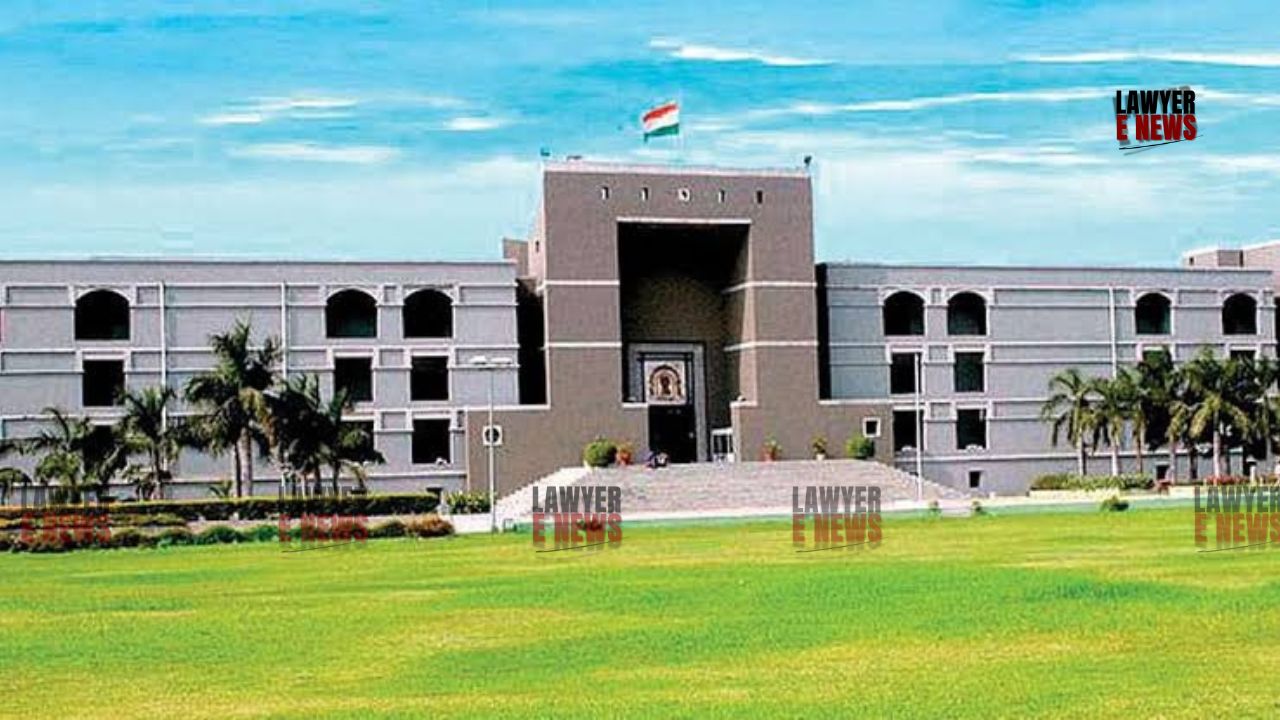-
by Admin
15 February 2026 5:01 PM



Gujarat High Court dismissed the State of Gujarat's criminal appeal in the case of State of Gujarat v. Nagabhai Harjibhai Patel & Anr., challenging the acquittal of the accused. The High Court upheld the trial court's decision, emphasizing that appellate courts cannot interfere with acquittals unless the findings are "perverse, illogical, or wholly unsupported by evidence."
"Delay in Medical Treatment and Lack of Corroboration Weakened the Prosecution’s Case"
The case concerned an alleged incident on July 16, 2007, where the complainant, Nagjibhai Dharmabhai Harijan, and his wife, Karmaben, claimed they were assaulted by the accused and subjected to caste-based slurs during a dispute over the alleged distribution of government seeds. The complainant filed charges under Sections 323, 504, and 506(2) of the Indian Penal Code (IPC), 1860, and Section 3(1)(10) of the Scheduled Castes and Scheduled Tribes (Prevention of Atrocities) Act, 1989.
While the alleged incident occurred at 7:00 am, the complainant and his wife sought medical treatment after a 12-hour delay. The medical certificates (Exhs. 16 and 17) issued by Dr. Pankaj Gupta (P.W. 5) failed to name the accused as the assailant, recording only a general history of "assault by stick." The injuries were described as "minor and consistent with a fall."
The High Court observed, “The delay in seeking medical treatment, coupled with the absence of the accused’s name in the medical reports, raises doubts about the veracity of the allegations. This delay remains unexplained by the complainant and weakens the prosecution's case.”
"Inconsistencies in Witness Testimonies Undermine Credibility"
The complainant (P.W. 6) and his wife (P.W. 7) alleged that the accused assaulted them with a stick and hurled caste-based slurs. However, the trial court noted several inconsistencies in their statements. The complainant, for instance, failed to mention in his police complaint that the accused had declared the seeds "sold" before the alleged altercation. During cross-examination, it emerged that the complainant had a history of filing cases under the Atrocities Act against other individuals.
An independent witness, Mansungbhai Thakore (P.W. 8), claimed he intervened during the altercation, but his testimony conflicted with his earlier police statement, omitting key details. The High Court remarked, “The testimony of P.W. 8 does not inspire confidence due to multiple contradictions. His statements lack the consistency required to corroborate the complainant’s account.”
The trial court also noted that prior political animosity between the complainant and the accused, who served as the village Sarpanch, further weakened the credibility of the prosecution’s case."Investigative Lapses Render the Case Unsustainable"
The High Court highlighted significant lapses in the investigation. The Investigating Officer failed to:
Confirm whether the accused had the authority to distribute government seeds.
Verify the alleged distribution or sale of seeds.
Collect the accused’s caste certificate, a critical requirement for proving the offense under the Atrocities Act.
Record statements from neighbors or other potential witnesses near the site of the incident.
The High Court noted, “The investigation failed to establish whether the accused was involved in the distribution of government seeds. Without these critical facts, the prosecution’s allegations remain speculative and unsubstantiated.”
"Double Presumption of Innocence Favors the Accused"
Relying on established legal principles from Chandrappa v. State of Karnataka (2007) and Sri Dattatraya v. Sharanappa (2024), the High Court reiterated the principle of "double presumption of innocence." Justice Pinto emphasized:
“An appellate court must exercise restraint while reviewing acquittals. The presumption of innocence is further strengthened when a trial court acquits the accused after evaluating the evidence. Unless the trial court's findings are perverse, illogical, or unsupported by evidence, appellate courts should not interfere.”
The judgment noted that the trial court meticulously analyzed all evidence and found that "the prosecution failed to prove its case beyond a reasonable doubt."
Benefit of Doubt Rightly Extended – Acquittal Confirmed"
The High Court upheld the trial court’s decision, stating, “The learned trial court has appreciated the evidence in its proper perspective. No illegality or infirmity has been committed in extending the benefit of doubt to the accused.”
The court concluded that the findings of the trial court were reasonable, consistent with evidence, and in line with legal principles governing acquittal appeals. It dismissed the State’s appeal, canceling the accused’s bail bonds and ordering the records and proceedings to be sent back to the trial court.
Date of decision : January 16, 2025
